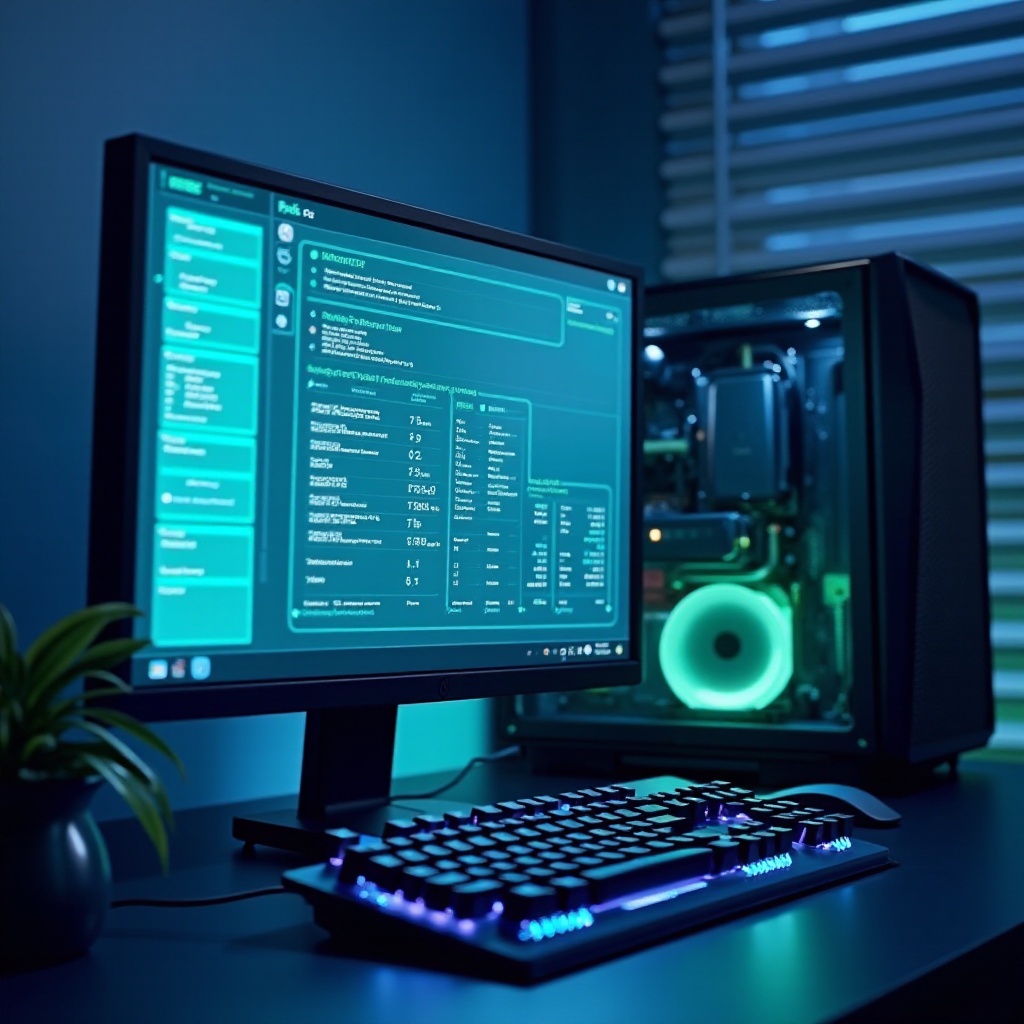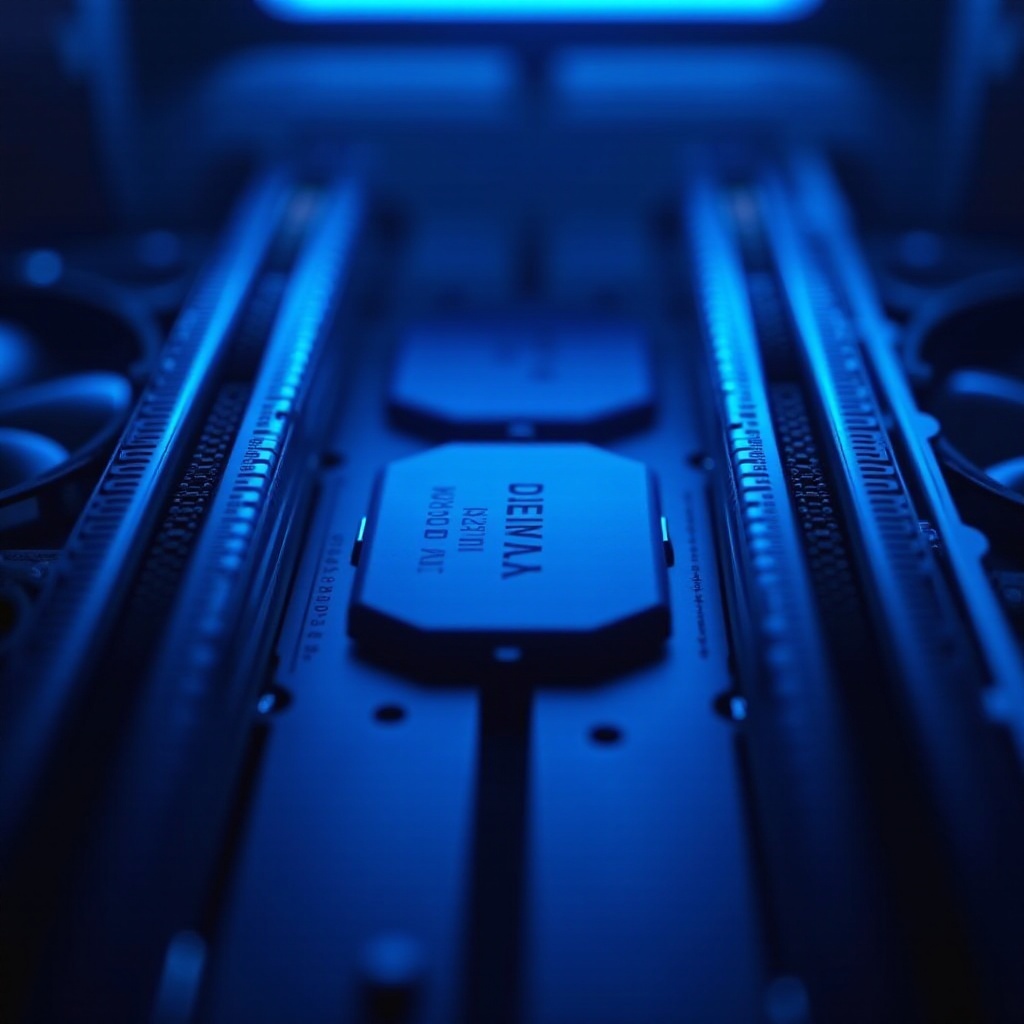Solving Gaming PC Shutdowns Without Overheating
Introduction
If you’re a gamer facing unexpected shutdowns, but your system isn’t overheating, it can be a puzzling experience. Overheating is often the first suspect when it comes to abrupt shutdowns, yet there are numerous other underlying issues that could be causing the problem. This comprehensive guide investigates the potential reasons behind gaming PC shutdowns not linked to overheating, focusing on diagnosing hardware problems and exploring software conflicts. By identifying the real cause, you can implement effective solutions to enjoy smooth gaming sessions without interruptions. Let’s delve into this issue by examining common triggers for these shutdowns.

Understanding Shutdowns
When your PC shuts down during gaming without overheating warnings, several potential causes could be at play. These might include issues with hardware components, software conflicts, or malicious programs interfering with system stability. Understanding the core reasons for these shutdowns allows us to handle them efficiently. A seemingly significant problem might have a straightforward resolution once you identify its root cause. This section sheds light on various factors that could lead your gaming PC to shut down unexpectedly, which will equip you for a more informed troubleshooting process. Our next step is to look at possible hardware-related culprits.
Diagnosing the Hardware
Identifying hardware issues is crucial to solving why your PC shuts off during games without signs of overheating. Here are some primary components to inspect:
Power Supply Unit (PSU) Issues
The PSU is responsible for delivering necessary power to your PC components. If it’s malfunctioning or inadequate, your system may shut down under intensified gaming tasks. Ensuring your PSU adequately supports demanding parts like the GPU and CPU is vital. The solution might be as simple as replacing or upgrading the PSU to meet your system’s power needs.
RAM and Memory Problems
Unstable performance due to faulty RAM can lead to sudden shutdowns. Running diagnostic tests on your RAM can help identify errors. Properly seating RAM sticks, cleaning their slots, and replacing any defective RAM can prevent many shutdown disturbances.
Motherboard and Internal Components
Issues with the motherboard or connectivity can also lead to shutdowns. Ensure all components are securely connected and check for visible damage. Simple actions like reseating components and cleaning dust can go a long way. If issues persist, professional examination may be required for more detailed diagnosis.
After examining hardware factors, it is equally important to consider software conflicts that might trigger these shutdowns.
Exploring Software Conflicts
Software issues, often overlooked, can be the cause of unexpected shutdowns. Here’s where to focus your investigation:
Operating System and Driver Issues
Outdated or corrupted operating systems and drivers can lead to unexpected shutdowns. Compatibility issues arise when games require updated system files or drivers absent from your PC. Regularly updating your OS and ensuring that all drivers, especially for your GPU, are current, can resolve many of these issues.
Game-Specific Bugs
In certain cases, the problem might be stemming from within the game itself due to specific bugs or patches. Checking community forums or the game developer’s site can provide insights on known issues and their fixes. Updating or reinstalling the game might also help resolve such conflicts.
Malware and Software Conflicts
Malware can disrupt system processes and cause shutdowns. Conflicting software might also cause stability issues. Regularly perform full antivirus scans and check for potential conflicting applications. Up-to-date antivirus software will help detect and remove threats.
Once both hardware and software factors are addressed, you can proceed to better troubleshooting approaches to solve shutdown problems effectively.

Effective Troubleshooting Steps
Here are practical troubleshooting steps to identify and fix the cause of your computer shutdowns:
Testing and Replacing Hardware
- PSU Check: Confirm your power supply’s reliability using tools like a multimeter or software to make sure it delivers appropriate power. Consider replacing it if issues are found.
- RAM Diagnostic Test: Utilize built-in tools or third-party software to test your RAM and replace any faulty units.
- Inspect Internal Components: Make sure all internal connections are secure and components undamaged. Reseat and clean if necessary.
Updating Software and Drivers
- Update Operating System: Regularly check for OS updates and install them promptly.
- Driver Check: Get the latest drivers from manufacturer websites or trusted software, prioritize updates for GPU and motherboard.
- Check Game Patches: Ensure your game is up-to-date and review forums for fixes of known bugs.
Securing Against Malware
- Conduct Antivirus Scans: Run full antivirus scans routinely with the latest antivirus tools to eradicate potential malware.
- Uninstall Useless Software: Remove unnecessary or suspicious software, which can conflict with gaming.
- Monitor System Performance: Use task management tools to detect and stop unusual activities consuming resources unexpectedly.
Implement these strategies, and also focus on preventive measures to further safeguard your gaming experience against future issues.
Preventing Future Shutdowns
Maintaining a well-functioning PC requires regular maintenance of both hardware and software components. Keep your PC clean, update regularly, and secure it from potential malware. Monitoring system performance and conducting routine component checks will greatly reduce the risk of future shutdowns. Regular data backups and updating your setup proactively can prevent possible disruptions from occurring.

Conclusion
Understanding and resolving non-overheating shutdowns in gaming PCs necessitate a detailed examination of both hardware and software components. Addressing issues with the power supply, RAM, and connectivity is important for fixing hardware drawbacks, while maintaining updated software and robust malware protection addresses software conflicts. By following these effective troubleshooting steps, gamers can achieve uninterrupted gaming sessions, enhancing their overall experience.
Frequently Asked Questions
Why does my computer shut off when playing games but not overheat?
Your computer may have hardware or software issues unrelated to heat, such as a failing PSU, outdated drivers, or malware.
Can software issues cause my gaming PC to shut down unexpectedly?
Yes, software conflicts, bugs, or malware can lead to shutdowns. Regular updates and scans can mitigate these risks.
How can I prevent my computer from shutting down during gaming sessions?
Maintain your system through regular updates, ensure hardware components are secure, and monitor for malware to prevent shutdowns.
